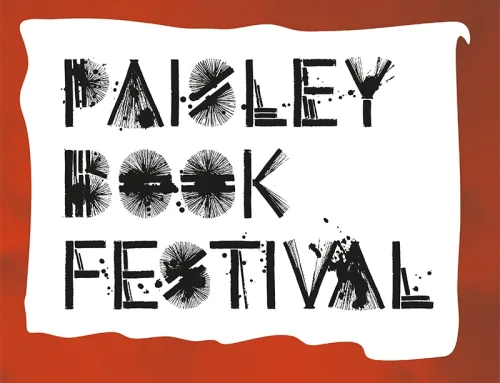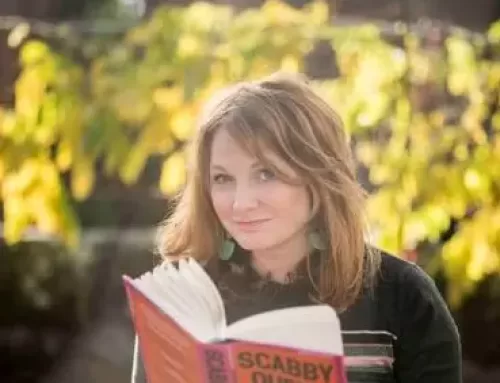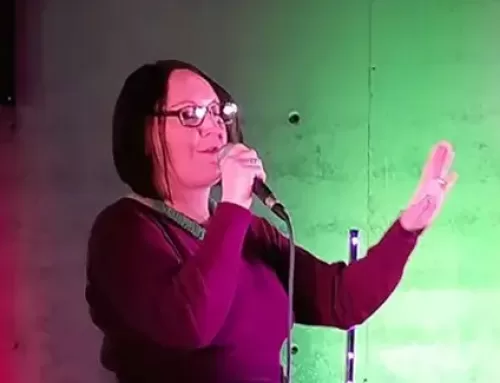Remaining true to the Paisley Book Festival’s commitment to what can perhaps be described as dystopian science fiction, Vikki Reilly talked with Ever Dundas and Tendai Huchu about the hidden worlds they have constructed. Under discussion is Ever’s second novel Hell Sans and Tendai’s second novel in his Edinburgh Night Series, Our Lady of Mysterious Ailments.
Both Ever and Tendai’s novels are political dystopias. They have in common a wide range of themes, but the novels differ in important ways.
Ever’s Hidden World is a dystopian near future in which the universal type face is called Hell Sans, a state-imposed and ruthlessly policed font in which everything is presented. Hell Sans makes the majority of the population feel blissful elation, while a minority are allergic to it. Bursting with allegory, Eva’s book is a critique of modern capitalist society in which the very things of the world make people sick. It is neither anti- technology, nor is it pro-tech, since, Eva says, these sharp binaries would make no sense. Technology, like the mobile phone in today’s society, has both a range of benefits, while at the same time being intrusive, manipulative and a form of constant surveillance. The technologies that abound in Ever’s book are no different, representing both life-affirming utility as well as pernicious forms of social and political control.
The ideas Ever draws upon come from her life as a disabled person living in the UK under successive Tory Governments, a deep disdain for whom she makes no attempt to disguise.
Tendai’s book is based on a dystopian near future Scotland, but differs in a number of ways. His world, riven by the levels of inequality that arise from augmented social hierarchy, is also allegorical of contemporary capitalism. Tendai states that humans are pre-programmed to crave hierarchies. If we dismantle one hierarchy, we immediately construct another. The technological innovations that make life easier and bestow social capital or social stigma, are lopsided in their distribution. In Tendai’s Scotland of the near future, electric cars sit side by side with horse drawn carts, and like Ever’s novel, the economic means through which people can ameliorate societal problems are unevenly distributed. Meritocracy is rendered obsolete. If someone is struggling at school, and if they can afford it, they can buy extra tuition and gain an unfair advantage. “If you are poor you are screwed”, Tendai claims. He likens this to the fact that in Ever’s novel, those who were allergic to the Hell Sans font, were largely denied access to health care and thus doubly disadvantaged. Intersectionality becomes a means through which the production and reproduction of the processes of oppression are imposed and maintained.
This type of dystopian fiction has been a regular feature at the Paisley Book Festival and will continue to be so. However, as inequalities continue to widen, political powerlessness and apathy become normalised, and the concept of perpetual crisis becomes embedded in our prevailing doxa, the work of the dystopian science fiction writer gets incrementally more challenging. In a social and political system, where total surveillance is inescapable and every aspect of life, both pleasurable and painful, are monitored and monetised, the dystopian science fiction writer must constantly innovate.
These two writers have not only stepped up to the mark, they have triumphantly crossed the line. Ingenuity in story telling techniques as well as new and innovative literary devices abound in the craft of these two authors. These cannot be convened in a review. The only way to find out is to read Ever’s Hell Sans and Tendai’s Our Lady of Mysterious Ailments, an undertaking I cannot recommend highly enough.











